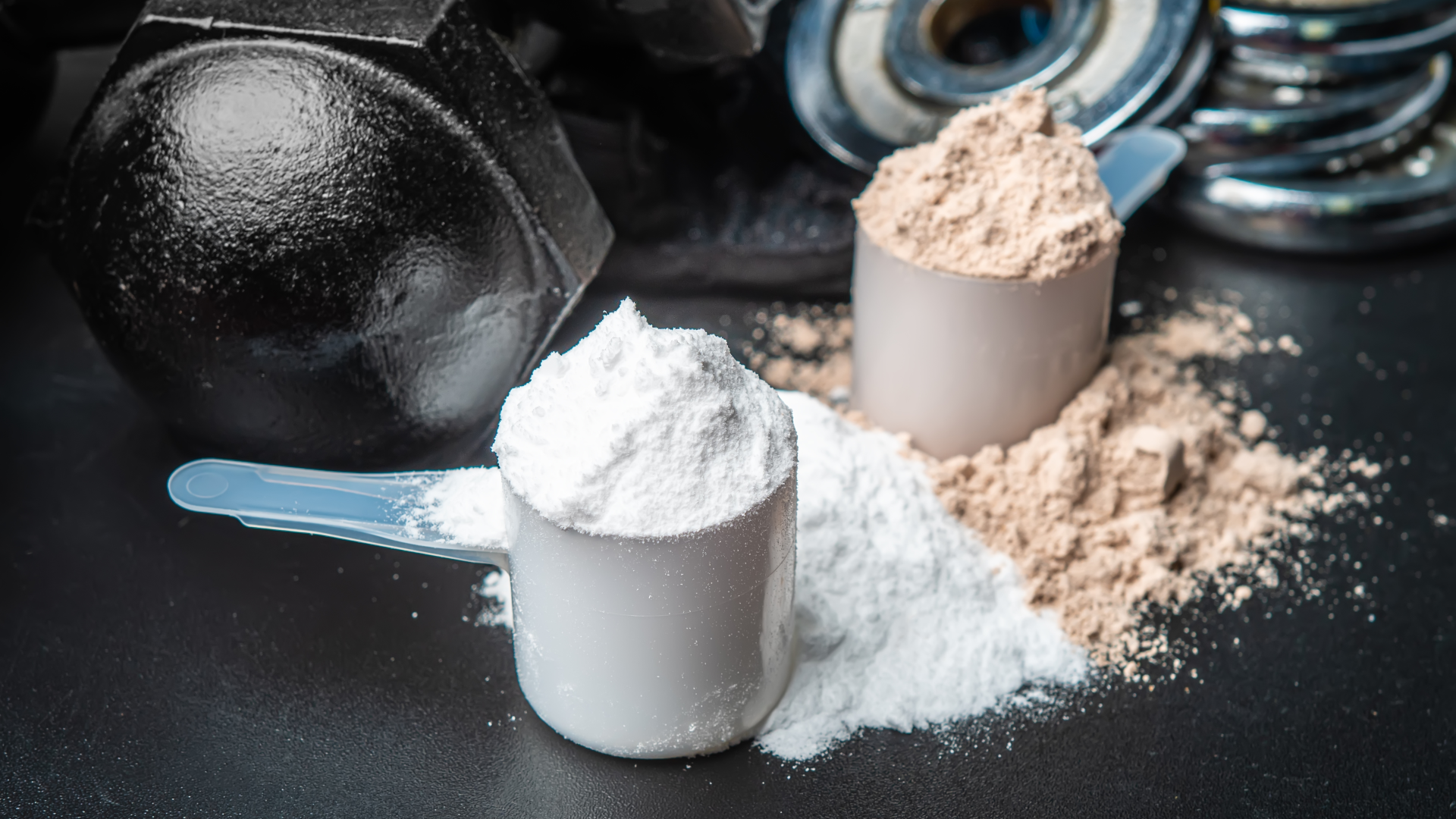Grab your cheat sheet |
Whey protein powder and casein protein powder are two supplements used by athletes looking to build muscle mass. They both support muscle growth and recovery during and after a workout.
Whey protein and casein protein are both milk-based proteins, meaning they are animal proteins. They are both vegetarian (but not vegan) and suitable for most people except those with severe lactose intolerance.
Milk-based proteins have a smooth and creamy taste and texture, so they are easy to mix with water, and milk, or to use in baking.
So yes, they are similar in many ways, but there are different reasons for taking casein protein vs whey protein powder.
Let’s find out which one is best for you.
How is whey protein different from casein protein?
While they are similar products derived from the same food source, there are important differences between whey protein powder and casein protein powder.
Absorption and muscle protein synthesis
The way the body absorbs the protein in whey vs. casein protein powder is the defining difference between the two protein supplements. The protein in whey protein powder is very quickly absorbed by our body, whereas the absorption rate of casein protein is much slower. 
When we drink a whey protein shake, our amino acid levels rise sharply, putting us into what’s known as an anabolic state, i.e., we are rapidly building muscle. It is a great supplement for encouraging muscle protein synthesis.
The opposite of this is a catabolic state, where our body is breaking down muscle. Casein protein is known as an anti-catabolic substance, meaning it prevents the breakdown of muscle.
Essential amino acids composition
Both casein protein and whey protein are high-quality complete proteins containing all nine essential amino acids. Casein protein, however, contains a higher portion of the amino acids histidine, methionine and phenylalanine. In contrast, whey protein has a higher concentration of the branched-chain amino acids (BCAAs) leucine, isoleucine and valine.
This is another reason why whey is more suited to building muscle, as the BCAAs (especially leucine) are the essential amino acids that kickstart muscle growth.
If they work differently, should you take both?
If whey is better for building muscle, and casein is better for preventing muscle loss, do you need to take both?
Well, it can certainly help! Having a protein shake of each on every training day can ensure you maximize the effect of your workouts. But it isn’t totally necessary. The amount of protein you consume throughout the day is more important than which type of shake you drink.
If you are sticking to just one type of protein, whey protein is the best at supporting an overall increase in muscle mass.
Drinking a whey protein shake will still reduce muscle loss, and it’s great for fueling muscle hypertrophy.
When to take casein protein and whey protein
While you will benefit from taking either protein at any time, there are optimum times for drinking your casein and whey protein shakes. Planning your whey and casein protein supplementation around your meals and workouts can really aid you in achieving your goals.
When to drink a casein protein shake
Casein is known as the bedtime protein due to its slower rate of absorption, meaning that our body digests and utilizes the protein over a longer period of time. This makes it an ideal nightcap for a few reasons:
- It is easy to digest, so you won’t be up to using the toilet during the night.
- It gives your body a more constant flow of protein through the night, giving your body the fuel it needs to repair your muscles.
- It helps prevent protein starvation and the resulting muscle loss, which can happen when it’s been a long time since your last meal (i.e., at 5 am!)
When to drink a whey protein shake
Whey protein powder, on the other hand, is an excellent pre or post-workout fuel. The best practice is to take it within 30 to 45 minutes of completing your resistance training. 
However, it’s just as important to ensure you get plenty of carbohydrates and protein before your workout so you can train hard and fight against muscle loss and fatigue during your session.
Casein vs. whey protein powder: which is best?
If you have to choose one, go for whey protein powder. The muscle-building quality of whey makes it the best protein supplement available.
However, using the two together is totally safe, and they can complement each other well when used correctly.
Our CrazyNutrition TRI-PROTEIN formula has a mixture of whey protein and casein, helping it break down over a longer period of time to fuel workouts and recovery.



